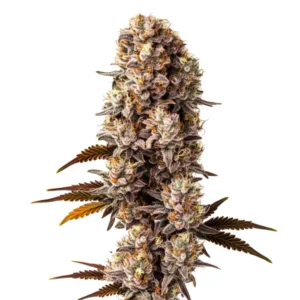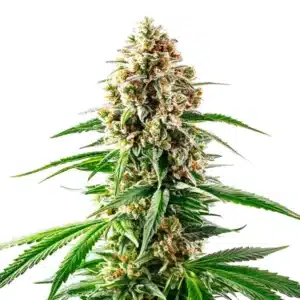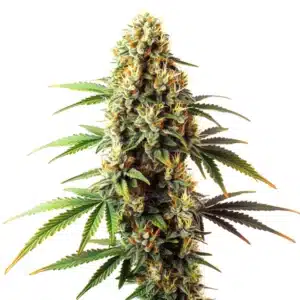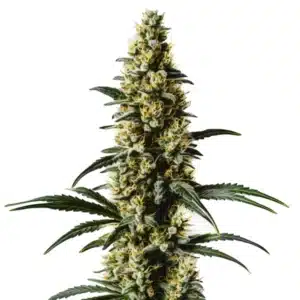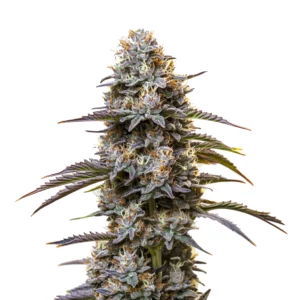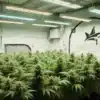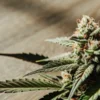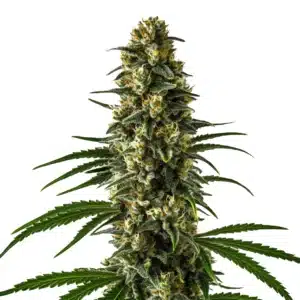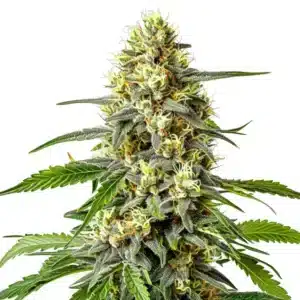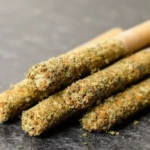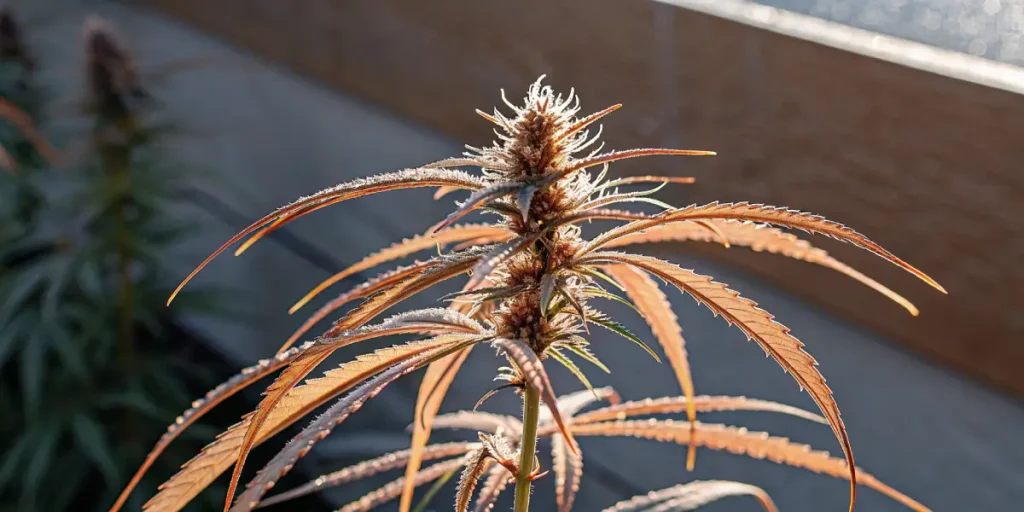
How THCA Becomes THC: The Essential Process
Ever wondered why raw cannabis doesn’t get you high? That’s because of THCA, the non-psychoactive compound found in fresh cannabis. Now, let’s dive into how THCA becomes THC. This transformation is key to unlocking the psychoactive effects associated with cannabis.
The journey from THCA to THC involves a fascinating chemical process. When you heat cannabis, such as through smoking or baking, you’re initiating a transformation. Through this heat activation, THCA undergoes a change, becoming the THC we all know and appreciate.
Recommended Strains
Killer
|
|
THC | 22% - 26% (High) |
|
|
Type | Feminized |
|
|
Yield | Medium |
|
|
Phenotype | 70% Indica / 30% Sativa |
Grape Killer 99
|
|
THC | 15% - 20% (Medium) |
|
|
Type | Feminized |
|
|
Yield | Medium |
|
|
Phenotype | 40% Indica / 60% Sativa |
If you’re growing your own cannabis or buying seeds, knowing this transformation can enhance your experience. By knowing how THCA converts to THC, you can better choose your strains and optimize your consumption methods for the best results.
The THCA Decarboxylation Process Explained
Decarboxylation is the scientific term for the process that turns THCA into THC. This THCA decarboxylation process involves removing a carboxyl group, which is a fancy way of saying heat causes a chemical reaction. When THCA is heated, it loses a carbon dioxide molecule, converting into THC.
Without this decarboxylation, THCA remains inactive in terms of psychoactive effects. That’s why raw cannabis won’t give you the high you’re seeking. Instead, it provides other benefits like anti-inflammatory properties. But if you’re looking for that classic high, you need to trigger this transformation.
The THCA decarboxylation process is crucial for both recreational and medicinal cannabis users. By knowing how THCA becomes THC, you can effectively manipulate the process to suit your needs, ensuring that you achieve the desired effects. This knowing is particularly vital for those who are new to cannabis or are experimenting with different strains to find what works best for them.
Additionally, the decarboxylation process can vary depending on the method used. While smoking provides immediate results, edibles require a more controlled approach to ensure that the heat activation of THCA to THC occurs efficiently. Each method has its nuances, and knowing how to optimize the THCA decarboxylation process can lead to a more satisfying experience.
Heat Activation of THCA to THC
Heat is the catalyst in this whole process. When you light up a joint or bake cannabis into edibles, you’re applying the necessary heat to activate THCA. This is why smoking or vaping cannabis delivers immediate effects, as the heat instantly converts THCA to THC.
For those who prefer edibles, the process is slightly different but follows the same principle. You pre-bake your cannabis at a low temperature to decarboxylate the THCA before mixing it into your baked goods. This ensures the THC is active and ready to work its magic.
Knowing the heat activation of THCA to THC is essential for those looking to maximize their cannabis experience. The precise THCA to THC conversion temperature, typically between 220°F and 245°F, is crucial for achieving optimal results without degrading the plant material. This balance is key to preserving both potency and flavor, ensuring a high-quality experience.
Moreover, experimenting with different temperatures and time frames can lead to varying effects, providing a personalized touch to your cannabis consumption. Whether you prefer a smooth, flavorful smoke or want to craft the perfect edible, mastering the heat activation process is a valuable skill for any cannabis enthusiast.
Promos & Deals
Converting THCA to THC Naturally
While heat is the most common method, it’s not the only way to convert THCA to THC. Over time, THCA can transform naturally. This is a slower process, where THCA gradually loses its carboxyl group even without heat. However, this method is less efficient and predictable.
For those growing their own cannabis, knowing this natural conversion can be beneficial. If you’re curing your buds, some THCA will naturally convert to THC over time. But to maximize potency, applying heat is still the most reliable method.
Converting THCA to THC naturally is an intriguing option for those who prefer a hands-off approach. However, it requires patience and an knowing of the environmental factors that influence the process. Light, humidity, and temperature all play roles in how effectively THCA transforms into THC over time.
Despite the unpredictability of converting THCA to THC naturally, this method can offer a unique experience for those willing to experiment. By observing the gradual changes in their cannabis, growers can gain a deeper appreciation for the chemical transformation and develop personalized techniques to enhance their harvest.
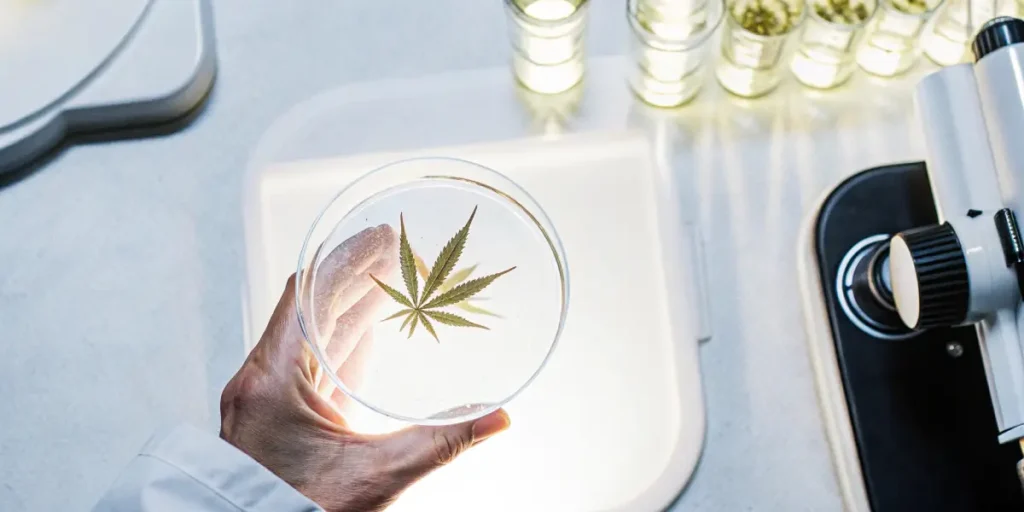
Chemical Transformation: THCA to THC
The chemical transformation from THCA to THC is a critical part of cannabis usage. This process not only activates the psychoactive properties but also enhances the therapeutic effects. Whether you’re using cannabis for relaxation or medicinal purposes, this transformation is key.
When considering strains like Chocolate Haze from Blimburn Seeds, knowing how THCA becomes THC helps you appreciate the nuances of each strain. Chocolate Haze, with its sweet flavor and uplifting effects, is a great example of a strain where THCA conversion plays a vital role.
The THCA to THC chemical transformation is not only fascinating but also fundamental to experiencing the full potential of cannabis. Each strain has its own unique chemical makeup, and understanding how THCA becomes THC can help you tailor your approach to each variety, enhancing both flavor and effects.
Moreover, the chemical transformation process allows for a deeper exploration of cannabis’s therapeutic benefits. By optimizing the THCA to THC conversion, users can target specific effects, whether they seek pain relief, relaxation, or a creative boost. This knowledge empowers both growers and consumers to make informed choices about their cannabis experience.
Practical Tips for Optimizing THCA to THC Conversion
To get the most out of your cannabis, it’s essential to optimize the THCA to THC conversion process. Here are some practical tips that can help you achieve this, especially if you’re growing your own plants or making edibles.
- Always use proper temperature control during decarboxylation. Stick to 220°F-245°F for the best results.
- If you’re making edibles, consider decarboxylating your cannabis beforehand to ensure maximum potency.
- Explore different strains such as Blue Dream for varied effects and experiences.
- Store your cannabis properly to prevent premature THCA to THC conversion.
- Experiment with different consumption methods to find what works best for you.
Using these tips can help you maximize the effects of your cannabis, ensuring you get the most out of every strain. Whether you’re a seasoned grower or new to cannabis, these strategies can enhance your experience.
Optimizing the THCA to THC conversion process can significantly impact the potency and quality of your cannabis. By knowing the key factors involved, such as the THCA to THC conversion temperature and storage conditions, you can ensure that your cannabis retains its desired effects over time.
Additionally, experimenting with different strains and consumption methods can lead to a more tailored experience. Whether you’re looking for a specific therapeutic benefit or a unique flavor profile, these practical tips provide a foundation for exploring the diverse world of cannabis and discovering what works best for you.
Real-Life Examples of THCA to THC Conversion
Imagine you’re growing a strain like Gelato from Blimburn Seeds. By knowing the THCA to THC chemical transformation, you can better appreciate its sweet, creamy flavor and balanced effects. This knowledge lets you tailor your growing and consumption methods to highlight these characteristics.
For those who enjoy edibles, visualizing the conversion process can be enlightening. Picture baking your favorite cannabis-infused brownies. As they bake, the THCA within your cannabis transforms into THC, ensuring your treats deliver the desired effects.
Real-life examples of how THCA becomes THC can provide valuable insights for both novice and experienced cannabis users. By observing the effects of different strains and experimenting with various consumption methods, users can gain a deeper knowing of how the THCA decarboxylation process influences their experience.
These real-life scenarios highlight the importance of mastering the THCA to THC conversion process. Whether you’re crafting edibles, growing your own plants, or trying out a new strain, knowing this chemical transformation can help you achieve the desired effects and enhance your overall enjoyment of cannabis.
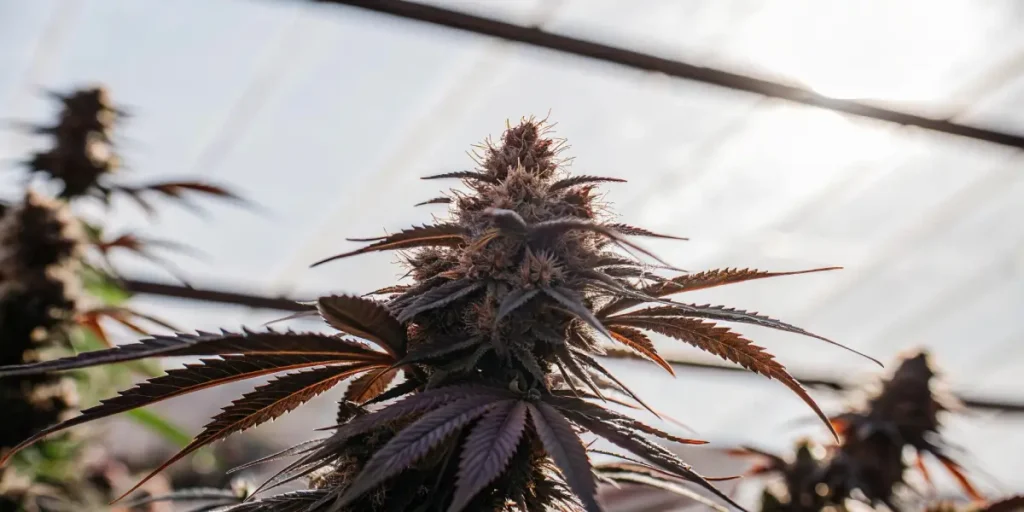
FAQs
What is the best temperature to convert THCA to THC?
Maintaining the right temperature is crucial for converting THCA to THC. The ideal range is from 220°F to 245°F. This temperature range ensures that the cannabis decarboxylates efficiently, maximizing THC activation without degrading the plant material.
When you’re making edibles or using other non-smoking methods, pre-baking your cannabis within this temperature window is essential. It ensures that the final product delivers potent effects, whether you’re crafting brownies or other infused treats.
Knowing the optimal THCA to THC conversion temperature is essential for achieving the best results. By maintaining a consistent temperature, you can ensure that your cannabis retains its potency and delivers the expected effects without any unpleasant surprises. This knowledge is particularly valuable for those who make their own edibles or are experimenting with different cooking methods.
Additionally, being aware of the temperature’s impact on flavor and aroma can enhance your cannabis experience. By fine-tuning the THCA to THC conversion process, you can create a product that is not only effective but also enjoyable to consume, offering a rich and satisfying sensory experience.
Can THCA naturally convert to THC without heat?
Yes, THCA can naturally convert to THC over time, but this process is much slower and less reliable. Without the application of heat, THCA converts at a gradual pace, often requiring months of curing to achieve noticeable effects.
While this method might appeal to those who prefer a natural approach, the results are inconsistent. For those seeking immediate and predictable effects, heat activation remains the most effective method for converting THCA to THC.
For those curious about the natural conversion of THCA to THC, patience and observation are key. This slower approach allows you to witness how environmental factors play a role in the chemical transformation, providing a unique perspective on the cannabis curing process.
However, relying solely on natural conversion may not be suitable for those who require consistent and immediate results. Knowing the limitations of this method can help you make informed decisions about your cannabis use and when to employ heat activation for a more predictable outcome.
How does the THCA decarboxylation process affect different strains?
The THCA decarboxylation process affects all cannabis strains, but the impact varies based on each strain’s unique chemical profile. Some strains, like Chocolate Haze, offer a more pronounced effect post-decarboxylation due to their specific terpene and cannabinoid makeup.
Knowing this process allows growers and consumers to tailor their approach when choosing and using different strains. By optimizing decarboxylation, you can highlight the unique characteristics of each strain, enhancing both flavor and effect.
The THCA decarboxylation process is integral to unlocking the full potential of each strain. By comprehending how THCA becomes THC, users can appreciate the subtle nuances that each strain offers, from its flavor profile to its psychoactive effects. This knowing can guide your selection and consumption, ensuring a more satisfying experience.
Moreover, experimenting with various strains and decarboxylation techniques can lead to discovering new favorites. Each strain’s unique response to the process allows for a wide array of experiences, inviting users to explore the diverse offerings of the cannabis world and find what resonates with them personally.
Why doesn’t raw cannabis provide the same effects as heated cannabis?
Raw cannabis contains THCA, which is non-psychoactive. Without going through the decarboxylation process, THCA remains intact, offering none of the psychoactive effects typically associated with cannabis consumption.
When you heat cannabis, you activate THC, the compound responsible for the high and other effects. This is why smoking or baking cannabis is essential for experiencing the full spectrum of its benefits.
The lack of psychoactive effects in raw cannabis can be puzzling to newcomers, but it underscores the importance of knowing how THCA becomes THC. By comprehending this transformation, users can better appreciate the need for heat activation and the funciton it plays in unlocking the full potential of cannabis.
Additionally, recognizing the benefits of raw cannabis, such as its anti-inflammatory properties, can broaden your appreciation for the plant. While raw cannabis may not provide the traditional high, it offers other therapeutic advantages that can be valuable for those seeking non-psychoactive benefits.
Is it possible to reverse the THCA to THC conversion?
Once THCA has been converted to THC, the process is irreversible. The chemical transformation is permanent, which is why controlling the conversion process is so important for growers and consumers alike.
This irreversible nature underscores the importance of knowing how THCA becomes THC. By managing the decarboxylation process effectively, you ensure that you’re getting the most out of your cannabis, whether for recreational or medicinal purposes.
The irreversible nature of the THCA to THC chemical transformation highlights the importance of careful planning and execution. For growers and consumers alike, knowing this process ensures that each step, from cultivation to consumption, is optimized for the best possible outcome.
By mastering the intricacies of the conversion process, you can maximize the benefits of your cannabis, ensuring a consistent and satisfying experience every time. This knowledge empowers you to make informed decisions about strain selection, consumption methods, and storage, enhancing your overall cannabis journey.


